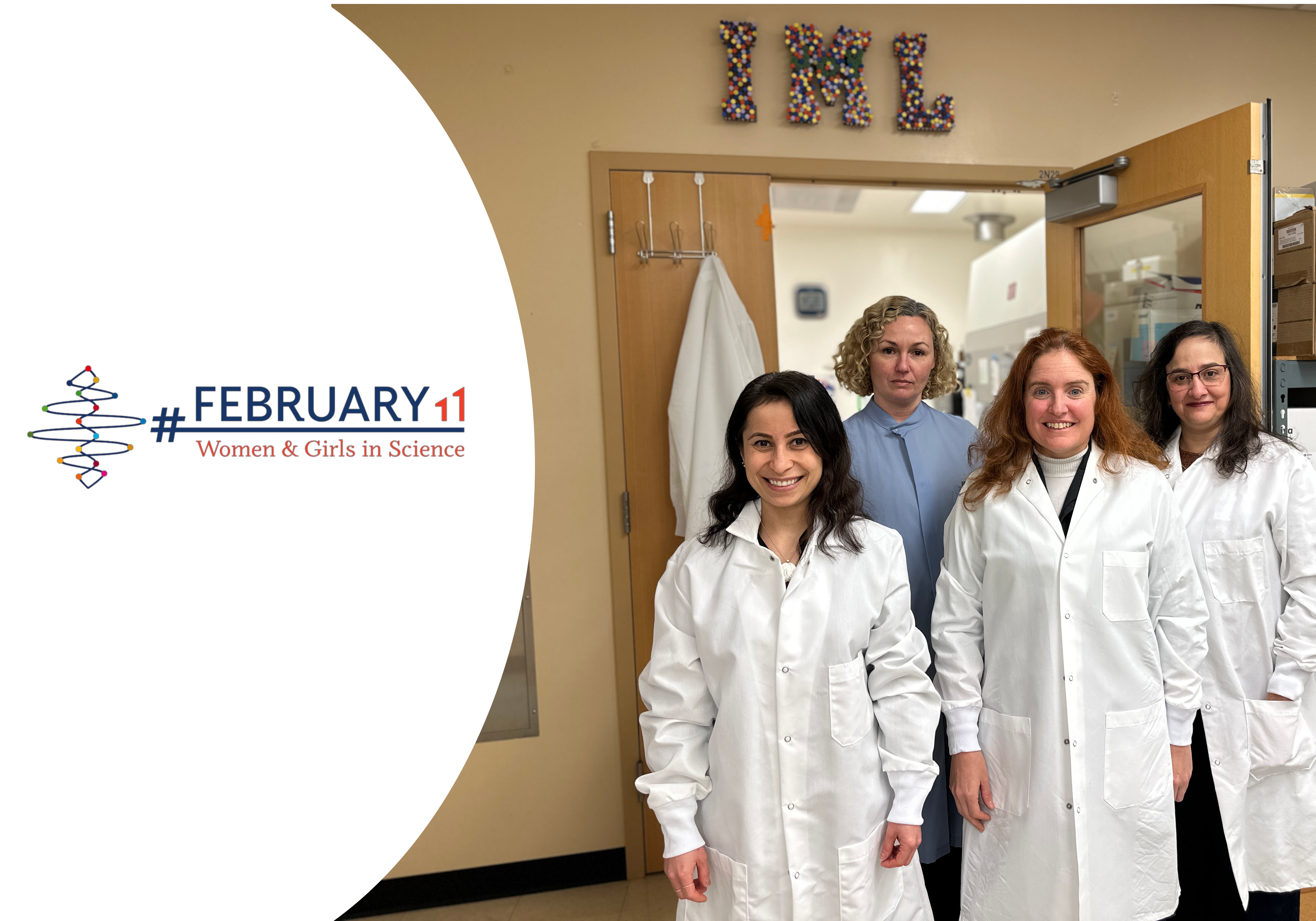
Earle A. Chiles Research Institute
Earle A. Chiles Research Institute
Our world-renowned team of scientists and clinical researchers continues to make breakthroughs in cancer research and medicine. Our leadership structure is modeled on faculty appointments at academic medical centers and universities. Full membership at our institute is equivalent to the academic rank of full professor.
Our leaders are:
- Rom S. Leidner, MD, member
- Prakash Ambady, M.D., associate member
- R. Bryan Bell, MD, DDS, FACS, FRCS(Ed), member, Walter J. Urba Endowed Chair for Cancer Research
- Brady M. Bernard, PhD, associate member
- Carlo B. Bifulco, MD, member
- Alison K. Conlin, MD, MPH, associate member
- Brendan D. Curti, MD, member; Robert W. Franz Endowed Chair for Clinical Research
- Christopher J. Darus, MD, MS, associate member
- Thomas M. Duhen, PhD, associate member
- Bernard A. Fox, PhD, member; Harder Family Endowed Chair for Cancer Research
- Jianguo Huang, PhD, assistant member
- Allie H. Grossmann, MD, PhD, associate member
- Terry R. Medler, PhD, assistant member
- David B. Page, MD, MS, associate member
- Brian D. Piening, PhD, associate member
- William L. Redmond, PhD, member
- Rachel E. Sanborn, MD, member
- Sasha E. Stanton, MD, PhD, assistant member (Physician profile)
- Matthew H Taylor, MD, associate member (Physician profile)
- Eric Tran, PhD, associate member
- Walter J. Urba, MD, PhD, Emeritus Member
- Andrew D. Weinberg, PhD, member, Judith Ann Hartmann Endowed Chair for the Laboratory of Basic Immunology
- Di Wen, PhD, assistant member
- Kristina H. Young, MD, PhD, member (Physician profile)
- Binbin Zheng, MD, assistant member
At the Earle A. Chiles Research Institute, we are on a mission to cure cancer and create a healthier world. As the research arm of Providence Cancer Institute in Portland, Oregon, we are a Providence Center of Excellence for precision immuno-oncology and cellular therapy.
Since 1993, cancer research has been our primary focus. Under the leadership of Walter J. Urba, MD, PhD, our team of innovative physicians and scientists work together to improve cancer treatment methods – seamlessly joining lab research and clinical trials with medical practice.
Learn more about our cutting edge treatment and the latest research.
Our main area of research is cancer immunotherapy – a specialized field of study focused on treatments that boost the immune system against cancer. Thanks to advancements in genomic sequencing, we are bringing together the power of immunotherapy and personalized medicine to accelerate leading-edge research and groundbreaking discoveries for patients with cancer.
Our research continues to flourish, in part from the generosity of donors, such as Robert W. Franz and Elsie Franz Finley. Today, we garner more than $10 million each year in federal, private and sponsored research funding. Our team has grown to more than 200 investigators and research personnel.
Learn more about the impact of cancer research donations through our Foundation.
We’ve been transforming cancer care for decades. Some of our highlights include:
For more than 25 years, we have pioneered immunotherapy research and treatments – considered one of the most advanced cancer therapies today. We led the global clinical trial of the first immune checkpoint therapy, ipilimumab. Ipilimumab was the first immunotherapy medicine approved for patients with melanoma and the first to improve patient survival. Its approval by the U.S. Food and Drug Administration (FDA) was an important milestone for the cancer community and led to a Nobel Prize in physiology and medicine. We’re delighted our contributions with ipilimumab helped achieve this honor and make immunotherapy the mainstream cancer therapy it is today.
We are home to the first research laboratory in Oregon for adoptive cellular therapy – a highly personalized type of cancer immunotherapy that enhances a patient’s cancer-fighting immune cells in a laboratory and returns them to the patient in greater numbers and potency. We are also among the elite centers capable of administering advanced cellular therapies such as chimeric antigen receptor (CAR) T-cell therapy, tumor infiltrating lymphocytes (TIL) and high-dose interleukin-2 (IL-2).
As a global leader in immunotherapy, we’re committed to developing treatments that benefit cancer patients everywhere. That requires investment in state-of-the-art research infrastructure and facilities. Located within the Robert W. Franz Cancer Center, our scientists and physicians have access to 45,000 square feet of dedicated research space and clinical manufacturing facilities. They also benefit from the most advanced equipment and technology available, such as MRI-guided radiation therapy, next-generation genomic sequencing and robotic surgery suites.
Our clinical research brings discoveries made in the lab to the patient’s bedside through clinical trials and a team approach to cancer therapy. We have a proven track record of investigator-initiated, cooperative group and industry-sponsored clinical trials.
We have led many first-in-human trials, including:
- Anti-OX40, a promising immunotherapy agent
- A novel, bacterial-based vaccine for glioblastoma multiforme (brain cancer)
- Alpha-TEA, a vitamin E analog proven effective on breast cancer in pre-clinical models
- Combination stereotactic body radiation therapy with immunotherapy for patients with advanced metastatic melanoma
Other key research topics include:
- Major organs and cancer conditions
- Adoptive cellular therapy
- Benefits of cancer genome sequencing
- Effectiveness of combining immunotherapy with other cancer therapies
- Side effects of chemotherapy and how to improve quality of life for cancer patients and survivors
- Treatments for COVID-19
Our lab research focuses on the power of the immune system to eliminate cancer. Together, our investigative teams – led by internationally recognized scientists – conduct studies in the lab. Results and findings guide the development of clinical trials and new therapies for cancer patients. Our scientists work in 14 dedicated labs:
- Adoptive Cell Therapy
- Anti-Cancer Immune Response
- Basic Immunology
- Biomedical Engineering
- Cancer Immuno-Genomics
- Cancer Immunoprevention
- Cancer Immunotherapy
- Cancer Signaling and Immunosuppressive Trafficking Laboratory
- Computational Immuno-Oncology
- Developmental Cancer Therapeutics
- Innate Immunology
- Molecular and Tumor Immunology
- Preclinical Cancer Therapy Laboratory
- Tumor Microenvironment
With 45,000 square feet of space dedicated to cancer research, our institute is home to several core facilities. These centralized spaces offer the latest in immunological monitoring, flow cytometry, immunohistology, molecular pathology and bioinformatics services. Our facilities are available to investigators within and outside of Providence.
Core facilities include:
- Biospecimen Repository
- Flow Cytometry Core
- Immune Monitoring Core
- Immuno-Histology Core
- Molecular Pathology Core
As part of our mission to lead the next generation of immunologists, we offer a rich training environment. Our programs span higher education – from undergraduate students to postdoctoral fellows.
Some of our programs include:
- Basic science fellowships
- Graduate education
- Immuno-oncology clinical fellowships
- Summer research program for undergraduate students

With your support, together we can finish cancer.
At the Earle A. Chiles Research Institute, we rely on the generosity of donors like you to support cancer research in immunotherapy. Your gifts help our researchers discover and develop medicines for all types of cancers – leading to more breakthroughs and saving more lives.




